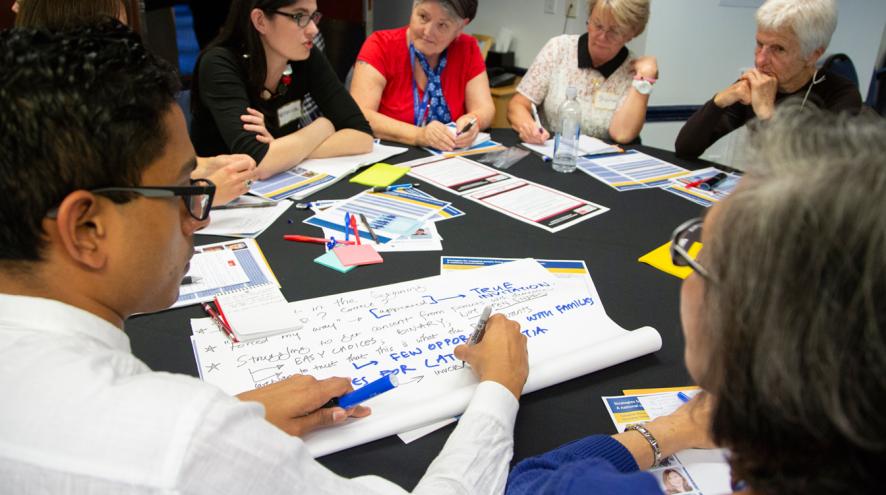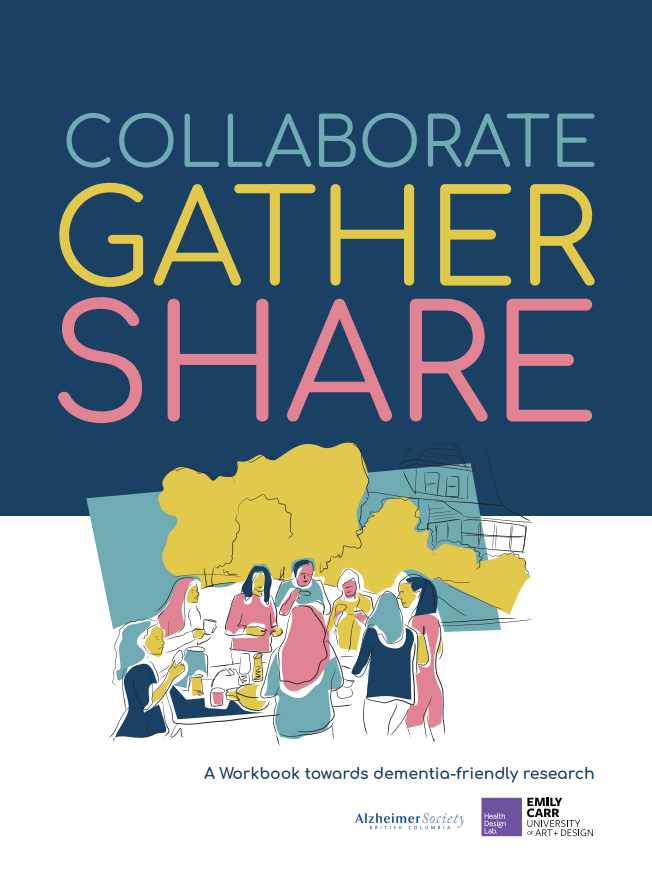Dementia-friendly research
Learn about dementia-friendly and inclusive research and its guiding principles.

There is a cultural shift towards patient-oriented research – both focused on and guided by people with lived experience. People living with dementia, as well as care partners, are experts with lived experience and can meaningfully contribute to research, beyond simply being a study participant.
The Alzheimer Society of B.C. is committed to defining and promoting dementia-friendly and inclusive research. This model of research meaningfully engages and partners with people living with dementia and care partners as participants, collaborators and advisors.
Research is dementia-friendly when it:
- Meaningfully engages people affected by dementia before the study begins to develop research questions.
- Invites people with lived experience to take on advisory and co-researcher roles during the study.
- Commits to accessible knowledge mobilization after the study is completed.
To overcome barriers to dementia-friendly research, researchers are encouraged to:
- Combat the stigma associated with dementia by examining their own beliefs and participating in education sessions and awareness campaigns.
- Educate research ethics boards on the unique needs and abilities of people living with dementia.
- Create flexible research designs to meet the changing realities of people living with dementia and allow for their continued participation throughout the study. This includes:
- Using methods that don’t solely depend on written or verbal communication.
- Scheduling activities around the person living with dementia.
- Using easy-to-understand, person-centred language.
Dementia-friendly research resources

Opening a Door to Collaborative Research: This brochure, created by people living with dementia for people living with dementia, emphasizes the importance of collaboration between researchers and people living with dementia.
Collaborate Gather Share: This workbook brings attention to how research practitioners use these practices and highlights how people with lived experience can contribute to research beyond their role as participants.
